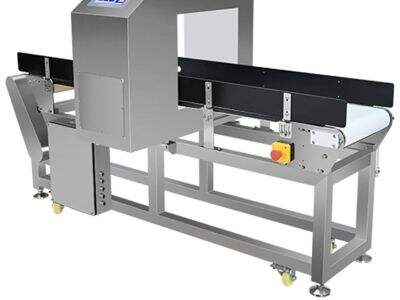False alarms and what to do about them:
Food metal detectors, though, can sometimes sound a false alarm. In other words, the detector believes there is a rock of metal where there is none. When false alarms occur on this important job of checking food for metal, the result can be frustrating. To reduce false alarms, it's important to verify that the metal detector is properly calibrated. That includes changing the sensitivity setting to accommodate the type of food being monitored. Ensuring the equipment is routinely inspected and maintained can also help cut down on false alarms.
Resolution of signal interference and its effect on detection reliability:
Signal disturbance occurs when messages are sent out by other electronic devices in proximity. This may result in a malfunction of the food metal detector such that metal of the food is not detected. Other electronic devices should be kept away from the metal detector to counter signal interference. You may also want to check that your metal detector machine is properly grounded in order to minimize the effects of interference. The environment between the operator and the detector should be checked to avoid the obstacle that affects the signal detection accuracy.
The correct maintenance and calibration for best function:
When it comes to keeping food metal detector in proper operating condition, they must be properly maintained and calibrated. You have to maintain the equipment, in the form of cleaning and identifying damages. Calibration allow the detector to recognize metal correctly. Proper maintenance and calibration is key, as this enables the metal detector to perform to its best ability. Maintenance and Calibration It is suggested to comply with the manufacturer’s instruction for proper maintenance and calibration to maintain the high performance.
Dealing with Product Effect and its Impact on Metal Detection:
Detection effect of food contents on the detection of food metal detector: When using food metal detector, food can be affected by the detection accuracy. This is referred to as product effect. Some products, such as high moisture or salty foods, can impede the signal of a metal detector detecting metal contamination. To overcome product effect it is vital to set the sensitivity of the metal detector accordingly. It is also useful to test varied food types to appreciate how product effect may impact on metal detection. Product effect can be detected, and recognition and general detection performance of the metal detector can be improved.
Troubleshooting and debugging of common problems of food metal detector:
Even when a food metal detector is being maintained and calibrated correctly, certain problems can arise that need to be resolved. Several general problems are adjustment of the sensitivity on the basis of detection, performance variances and failure of elements. The manufacturer's advice As with all things electricity, the manufacturer's specifications and instructions must be observed when diagnosing these problems. This might be as simple as the power supply, the conveyor, or calibration controls on the metal detector.

















































